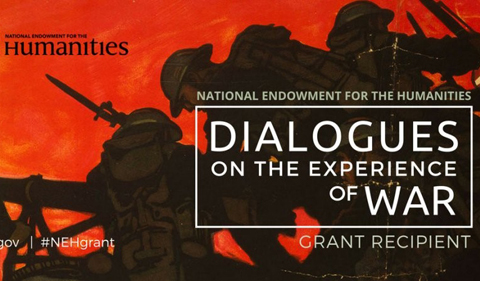The Contemporary History Intsitute is seeking veterans and service members to participate in a “Coming Home from War” program this academic year.
“We are now inviting veterans who would like to participate in three two-hour conversations about their experiences and challenges in war and after coming home,” says Dr. Ingo Trauschweizer, Associate Professor & Director of Contemporary History Institute.
The free public program—”Coming Home from War: Conversations for Veterans in Southern Ohio and the Appalachian Region”—explores the effects of combat experiences, from coping with killing to survivor’s guilt; reintegration into society; coping with trauma, injuries, and disabilities; and coming home to an economically stressed region. The program that will bring together veterans and service members to reflect on their service, war, and homecoming experiences through conversations about humanities sources (film, fiction, poetry, theater).
Any current or former service member can participate. For more information, contact the Contemporary History Institute at conhist@ohio.edu or 740-593-0100.
The two-hour evening group conversations will meet three times, once per week, in January and February.
The Coming Home from War program is part of an $80,000 grant from the National Endowment for the Humanities initiative “Dialogues on the Experience of War” for Ohio University’s Contemporary History Institute to conduct a humanities-based program for veterans on campus and in the community in 2018-19.
The Dialogues on the Experience of War grant program was created in 2015 as part of the Standing Together initiative, which emphasizes the innovative ways in which the humanities can engage military veterans and communities.
Trauschweizer, with the help of Dr. Nukhet Sandal, Associate Professor of Political Science and director of War and Peace Studies, and David Edwards, director of the Veterans and Military Student Services Center, assembled a team of 10 Ohio University faculty members and two external consultants who are conducting an interdisciplinary training program for undergraduate and graduate students in the fall semester. They are preparing a group of 10 students to lead conversation groups with veterans, who could be students or members of the Athens or regional communities, in the spring term.




















Comments